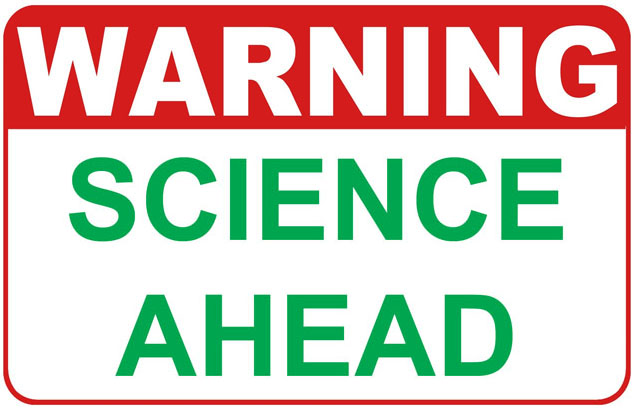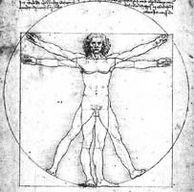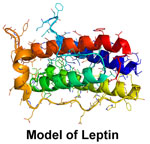 Your single most important lifestyle choice for preventing and even reversing the Diseases of Civilization is your eating pattern, specifically the duration and frequency intermittent fasting (IF). Cardiovascular disease, dementia (including Alzheimer’s Disease), diabetes, obesity, cancer, arthritis, metabolic syndrome all respond positively to IF.
Your single most important lifestyle choice for preventing and even reversing the Diseases of Civilization is your eating pattern, specifically the duration and frequency intermittent fasting (IF). Cardiovascular disease, dementia (including Alzheimer’s Disease), diabetes, obesity, cancer, arthritis, metabolic syndrome all respond positively to IF.
Modern medicine only offers drugs and similar short-sighted treatments that will not make you healthy. Instead, the more that science examines the effects of intermittent fasting , the clearer it becomes that this is a crucial component of a long and healthy life.
Summary of Research
IF simply refers to periods of non-eating. How long these periods are, and what you consume during fasting, vary. The most common fasting period for research purposes is about a day – i.e., 18-24 hours. Caloric consumption, which is an asinine biological concept, includes anywhere from zero to about 600 calories during ‘fasting’. With that brief and oversimplified description of what IF means, this is what has become clear:
YOUR BODY REQUIRES REGULAR FASTING FOR A MINUMUM OF ABOUT 16-24 HOURS AT A TIME FOR OPTIMIZING ANYTHING ELSE YOU DO FOR MAINTAINING YOUR WEIGHT AND BODY FAT COMPOSITION, FOR STAYING HEALTHY, AND FOR LIVING AS LONG AS YOU ARE SUPPOSED TO.
The above is a quote from my ebook, How to Lose Belly Fat (and Keep It Off). (Clicking on that link takes you to a page that provides more detail about the book.) I made that claim based on what the published scientific research had already shown about the benefits of IF, which at that time were:
- Reduces body fat and body weight
- Helps build and maintain skeletal muscle mass
- Reduces blood glucose levels
- Reduces insulin levels
- Increases insulin sensitivity
- Increases ketone levels
- Increases lipolysis (fat breakdown) and fat oxidation
- Increases Uncoupling Protein-3 mRNA
- Increases adrenaline and noradrenaline levels
- Increases glucagon levels
- Reduces chronic systemic inflammation from food-related stress
- Increases cellular cleansing
- Increases growth hormone levels (the biggest benefit of all?)
Some of those items may seem a little technical. However, they show how important IF is in health research. Scientists do not do research just for the fun of it. They choose subject material because of its importance as reflected in the grant money they can get for doing it. In other words, IF is big.
Many Strategies for Intermittent Fasting
Research on IF entails different periods of fasting, although studies do not really compare different periods directly in the same experiment. It is left to us to dig into the results and decide what seems to be the best approach. Here is what we can surmise so far:
DAILY FASTING. A period of 4-5 hours is a requisite minimum fasting period between meals. The time between dinner one evening and breakfast the next morning is also a crucial 12-14 hour period for non-eating. This daily meal spacing pattern provides the optimum health benefits for your eating style. Note that it prohibits snacking between meals.
What we know about the health benefits of this eating pattern highlights the utter idiocy of advice to eat several small meals per day. Do not believe such nonsense. Never eat that often. Do not snack between meals. The worst possible thing you can do for your health, based on eating, is eat too often.
By the way, the concept of eating ‘3 square meals’ per day – breakfast, lunch, dinner – is a modern one. You do not have to eat 3 meals a day to be healthy. In fact, optimum health requires that you eat just 1-2 meals per day. Furthermore, if you eat the right foods (more on that later), you will not even be hungry between meals.
WEEKLY FASTING. This is where IF truly comes into its own. It is based on once per week, or more often, of non-eating for a period of about 24 hours. The minimum timeframe seems to be 18 hours. The maximum, on the other end, is about 36 hours of fasting. Fasting fewer than 18 hours somewhat diminishes health benefits, and fasting for more than 36 hours doesn’t really add much. The target period can therefore be simplified by a ‘dinner to dinner’ fasting period. Eat dinner one night, then fast until dinner the next night.
Biology of Intermittent Fasting
We have about 30,000 genes in every cell nucleus. They are basically responsible for: 1) getting things made; 2) making sure that whatever gets made works right; and, 3) getting rid of or recycling old used up parts. Steps 1 and 2 have attracted the most attention over scientific history. However, step 3 has recently become one of the hottest topics in scientific research over the past couple of decades.
Step 3 is essentially our cellular garbage collection and disposal system. Cells come and go. Proteins, hormones, even DNA itself, and other products of normal metabolism come and go. The cellular garbage system makes sure that everything that is old and worn out gets removed so that it doesn’t hamper the ongoing building processes for new stuff. If too much garbage hangs around too long, then cells are unable to function properly. Such cellular dysfunction is the foundation upon which the Diseases of Civilization rest.
Scientists, of course, are too nerdy to call step 3 our garbage removal system. They have a technical name for it instead: autophagy. This is a great term, because it means ‘eating self’. Pretty cool, huh?
PubMed, the medical database at the U.S. National Institutes of Health, lists the first publication on autophagy as 1965. Since that time, more than 18,000 research articles have addressed this topic, nearly 17,000 of which have been published in just the past decade.
Yes, indeed, this is a HOT research topic.
The driving force behind all this research intensity is the importance of autophagy in almost everything that impacts human health. Basically, a well-functioning autophagic system enables healthy metabolism. A poorly functioning autophagic system does just the opposite.
By the way, the autophagic system doesn’t work so well when there is too much garbage. Too much garbage is a consequence of eating too often. This is where fasting (IF as well as proper meal spacing) comes to the rescue.
The most important goal of current research for the rest of us is finding out how to make autophagy work the way it is supposed to. A long, healthy life depends on it.
If you have read this far, you have probably already figured out where this article is headed: Autophagy gets gummed up when you eat too often; fasting fixes it.
Let’s hear it for better autophagy!
Boosting Autophagy by Fasting
Actually, that headline states it all. Fasting gives your cells a chance to get the garbage out and do what they are supposed to do to stay healthy. You’ve got to have healthy cells for a healthy body.
Just ‘being healthy’ is often not a sufficient incentive for people to make good lifestyle choices. It is more likely that being sick is a disincentive for making bad choices. Whatever it is for you, IF is a good lifestyle choice because it will prevent DOCs and it will reverse them if you are already suffering.
Some of the research on boosting autophagy also cites the benefits of a ‘caloric restriction’ (CR) eating style. This means eating less at every meal – a lot less. Typical CR means eating two-thirds of what you normally eat. Some folks can do this, although most won’t. Even the CR specialists admit that they are hungry all the time.
To be complete, therefore, keep in mind that IF is not the only way to boost autophagy. CR will also do so.
Most of the benefits of IF and CR are comparable. One of the main differences is a biggie, though: IF generally boosts fat metabolism better.
With that in mind, let’s take a look at a recently published update on the autophagy-boosting benefits of fasting. Some of these effects are still only known in lab animals, which extrapolate to humans in ways that are not yet fully understood.
Here is what else IF (CR) can do for you…
Add the following to the list that I included in Fat Loss Biology:
- Lengthen lifespan by up to 30 percent
- Provide resistance to diabetes
- Inhibit formation of cancer
- Prevent neurodegenerative diseases
- Enhance the effects of endurance exercise
- Protect against tissue injury and disease
- Boost maintenance of muscle mass
- Selectively metabolize fat (IF, not CR)
- Experience fewer side effects of chemotherapy
- Arrest brain cancer (single case study)
- Improve symptoms of asthma
- Ameliorate measures of cardiovascular risk
As you can see, the list of benefits from IF continues to build. Moreover, these benefits can be explained by the effects of IF on boosting autophagy.
Let’s not be too delicate or technical here now:
If you eat less often and incorporate IF into your lifestyle, you will be healthier and live longer.
If you eat too often, you will suffer from an increasing number of DOCs all the way to the end of your shortened life.
Individual Results May Vary
This is an important catchphrase that drug and supplement companies use for wiggling out of poor outcomes for some people. The truth is, however, that a gazillion things interact to make you unhealthy – anything from hormone imbalance, a toxic environment, poor sleep, ineffective stress management, etc. Any one of them can undermine the expected benefits of IF. One particular factor that can torpedo almost everything you can do to be healthy is obesity.
If you are obese, let’s say 30 pounds or more overweight, then you are most likely resistant to a key hormone that drives healthy metabolism in dozens of ways. That hormone is leptin, better known as the master fat hormone. Actually, it is a master of much, much more. If you are leptin resistant, chances are that you already have one or more DOCs. Type 2 diabetes and undiagnosed pre-diabetes are the most common. They are tied to many others DOCs.
If you are leptin resistant and you already suffer from one or more DOCs, then your most important step is to reinvigorate your leptin sensitivity.
I strongly encourage you to dig into the two best sources of information that I have discovered about leptin and how to manage it: 1) the book, Mastering Leptin (3rd ed.) by Byron J. Richards and Mary Guignon Richards (available on Amazon); and the Leptin Prescription webpage by Dr. Jack Kruse. Dr. Kruse is an enlightened neurosurgeon and fellow science guy who provides lots and lots of details about human physiology and biochemistry on his website. I love it. However, you may have to wade through his scientific explanations to mine the nuggets that will change your life for the better.
The summary provided by Dr. Kruse, linked above, tells you what you have to do to reset your leptin and what you can expect from it. He mentions elsewhere on his website that a crucial component of the initial reset is a ketogenic diet. In case you never heard of it, this is a diet that specifically directs your body to burn more fat, which gives rise to ketones. The simplest approach to this diet is the 14-day ‘Induction Phase’ of the Atkins Diet.
Basically, the ketogenic diet Induction Phase consists of limiting your carbohydrate intake to 20 grams or less every day. You must keep track of your carb intake very carefully. You can also keep track of your level of ketosis at home with Ketostix Test Strips, available over the counter at many pharmacies.
As your level of ketosis increases, you will see phenomenal changes in your body. Your waist will shrink. Your weight will drop very fast … which is mostly water weight at first. After a few days you will feel more energetic.
The Epi-Paleo Diet
Dr. Kruse has a book, Epi-paleo Rx: The Prescription for Disease Reversal and Optimal Health (on Amazon), that explains and guides you to reversing DOCs. One of the keys to his prescription is a daily mini-fast between breakfast and dinner. He calls it IF, which it is, even though it isn’t the 24-hour period that most research is based on.
The daily mini-fast still gives you a chance to boost autophagy because the breakfast that Dr. Kruse recommends is a high-protein, high-fat meal. It works in part because it is less inflammatory than standard carb-heavy breakfasts. It is also very satisfying and, if high enough in protein, will easily last for 8 hours without hunger.
In a nutshell, therefore, reversing any DOC requires resetting your leptin sensitivity and keeping it there. This will initially entail following a ketogenic diet. You may have to stay on this diet for a longer timeframe for full recuperation from your DOCs. Your anti-DOC strategies will also entail fasting, either Kruse-style daily or full IF (24-hour) one or more times per week. Actually, I have found that combining both of these strategies is best for me, and I will explain why I think that is the case below.
You have probably noticed the term ‘paleo’ in the Epi-paleo Rx, which does refer to paleo-style eating. That is the eating style that makes the most sense in human biology, and it is the one that provides the greatest chance of being truly healthy. If you are really serious about being healthy you will be eating as close to paleo-style as you can.
Myriad aspects of your metabolism can go haywire and undermine your health, so my comments here are simply to point you in the right direction for getting and staying healthy. Many, many additional steps, large and small, may be important for you. At least now you know that IF is a crucial component of your lifestyle no matter what else is going on with your health.
More On Ketosis
The key to staying in ketosis is your carbohydrate intake. Once you have achieved it, during the 20-gram per day induction phase, you still must keep your carb intake low enough to hang around ketosis. Every cell in your body will benefit from it. Everything that you do to stay healthy will benefit from it. It is simply the way your body works best.
The question at this point is, how much carbohydrate can you consume and still remain in ketosis? Well, individual results will vary. However, it is very easy to monitor yourself with Ketostix. You will discover that you can slip out of ketosis within just one day of overdoing the carbs.
In general, you will have to keep your intake lower than you think. For you, it may be 50 grams per day, 100 grams per day, or even more. Not too much more, for sure.
Pay Close Attention to This
Efficient autophagy is the underlying key to good health. Unfortunately, autophagy, like everything else, loses efficiency as you age. Food digestion, immune system, brain function, muscle mass, bone strength, organ function, fat metabolism … anything and everything you can think of. Eating too often hastens all natural deterioration. Eating sugar and starch accelerates deterioration even faster.
Your challenge is to make sure that your health drop-off is not any faster than it should be. Eating right, which includes IF, is of crucial importance in doing so.
Here is the kicker: It appears that the importance of IF increases with aging. In fact, it seems as though the older we get, the more frequent IF should be for staying healthy. For example, folks in their 60s and beyond benefit most from IF when it is done 4 times per week. Or, the equivalent of every other day.
Indeed, there is nothing wrong at all with doing IF every day, as long as you eat well (i.e., paleo-style, low carb) at every meal.
In my own personal experimentation – meaning, on myself – the best eating style is:
24-hour IF twice per week
End each fasting day with a high-protein, high-fat dinner
Start regular eating days with a high-protein, high-fat breakfast
No lunch (never hungry after that kind of breakfast!)
End regular eating days with a high-protein, high-fat dinner
No between meal snacking; no after dinner snacking – EVER
That is an excellent recipe for a healthy 67-year old man (me) to stay in good health.
Can this eating style tolerate cheating? Yes, of course. Not so much if you are using it to reverse a health problem, such as type 2 diabetes. Cheating can set you back in a hurry if that is the case. In contrast, I am very healthy and can get away with having beer at football tailgaters, cookies during the holidays, and my favorite See’s chocolate on Valentine’s Day. My eating style gets me right back on track immediately, every time I fall off the wagon for a day or two.
Now…have at it and be healthy!
All the best in natural health,
![]()
Statements on this page have not been evaluated by the Food and Drug Administration. This product is not intended to diagnose, treat, cure, or prevent any disease.




I am sold on IF and Paleo, but I am wondering how much credence to give to the naysayers who point out that folks like me with Hashimoto’s Thyroditis should not practice them, especially IF. I typically try to eat one small meal and one larger meal within a 7 hour window daily. I admit that I take supplements outside that window, so I also wonder if that will ruin the IF goal I am seeking.
Thanks for all of your insights and help!
May your medical ministry be richly blessed!
Hi, Shalom:
Thanks for the comment. You are on the right track, regardless of what the naysayers have to say. There will always be naysayers, which puts a premium on thinking for yourself. Good job. Oh, taking supplements generally will not undermine IF, unless you have a large number that have carb-based fillers. Even then, it may be just a few grams. In regard to Hashimoto’s, let me point you to Dr. Kruse’s comments for some clear thinking, here: http://jackkruse.com/hashimotos-and-melasma/. YOu may even be able to join his forum for further information from other folks with the same diagnosis. Good luck!
All the best,
Dennis
Looking forward to trying the IF! Thank you, Dr. Dennis!
Hi, Kim…Great news. In case you get a little hungry, which happen more at first, just embrace it. You can get to enjoy the feeling of hunger, really. Good luck!
All the best,
Dennis
Hi Dr Dennis,
I think you’re response to Shalom kind of provided me with an answer.I was just wondering, when living a fairly active lifestyle with the future prospect of becoming well toned and healthy (I am 32 old male)and utilizing regular supplementing, for instance, would consuming high protein shakes 4 to 5 times a day be hampering the effects of IF? IN OTHER WORDS WOULD THESE SHAKES COUNT AS SNACKS?
Thank you for all the information.
Deugald
Hi, Deugald…Great question. Yes, protein shakes are definitely snacks. In fact, in one experiment on IF, a study showed that even a single 1-gram dose of just one amino acid (glutamine, I think), disrupted the fast. Proteins can also cause an insulin spike and be converted to carbs, so be sure to get plenty of fat. Enjoy!
All the best,
Dennis
Hi Dennis, I’ve really enjoyed your book Fat Loss Biology and am now half way through Body by Science. Love all this great info.
I’ve been in ketosis now for 2 weeks and my energy is picking up. I am a mountain bike cyclist and ride with high intensity for 1:30 to 2:00 hrs once a week. I do weight training once a week and HIIT 2 times a week on a stationary bike.
I fast 24-36 hours 2 x a week and eat 3 meals a day. My current routine is as follows:
Mon – Weight training (strength)
Tue – Fast
Wed – HIIT 1min/1min x 7
Thu – Rest
Fri – HIIT 1min/1min x 7
Sat – Cycle 30km
Sun – Fast
What should I be eating before, during and after my long rides and workouts? I’m running out of energy at the 1 hour mark eating F/C/P 33gm/42gm/33gm plus another F/C/P 1gm/18gm/14gm (electrolytes & whey) during the ride.
Should I be increasing the carbs? I used to eat F/C/P 8gm/66gm/33gm before my rides plus another F/C/P 1gm/18gm/14gm (electrolytes & whey) during the ride which worked better.
Also, what is the best time to exercise for fat loss? Before/after breakfast/dinner?
Thanks for all the great info you’re putting out there.
Cheers,
Shane
Hi, Shane:
Thanks for your kind words. You probably already discovered the answer to your question. If you are running out of gas after you are already glycogen-depleted (i.e., in ketosis), then carbs are your best quick energy food. This is more like world-class endurance athletes, for whom carb-loading makes sense. Keep an eye on your ketosis to see what it takes to stay in that window (using Ketostix). Regarding the best time for exercise for fat loss, the daily rhythms are not as important as working out in a fasted state. Working out at least two hours before or after a meal would be great (not counting your long rides that would drain you too much, just the HIIT and weight training).
All the best,
Dennis
Hi Dr. Clark, I’m a 58 yr old female, weigh 214lbs, 5’6″. I IF everyday generally from dinner to late lunch with a 5 hr eating window. When I eat I usually get less than 1200 calories, mostly fats and lesser protein. Everyone tells me I eat too little which is why my weight loss is so slow. But I figure CR is whatever you feel like doing, and I find I can’t eat more. Am I doing this right?
Curious,
Bette
Hi, Bette: The bottom line about calories is that they are an irrelevant measure of anything to do with food. Good fats and sufficient protein are the key, in the amount that you feel like eating. The most important strategy for you, given no doubt that you are leptin resistant, is to reacquire leptin sensitivity as soon as possible. The best guide for doing so is provided by Dr. Jack Kruse, here: https://www.jackkruse.com/easy-start-guide/. This is your healthy salvation. Good luck! You can do it!
All the best,
Dennis